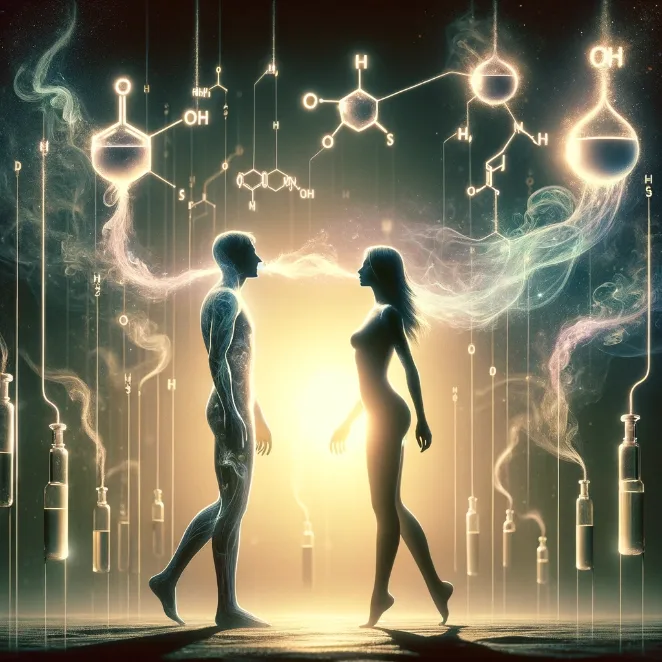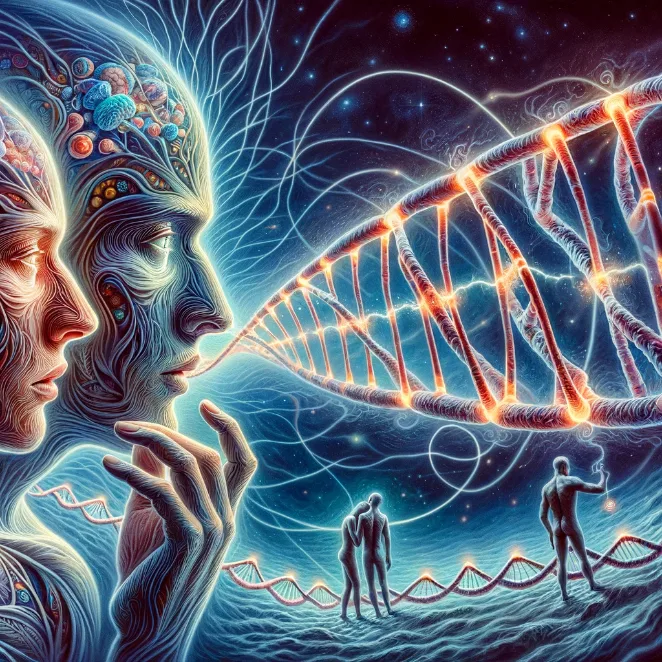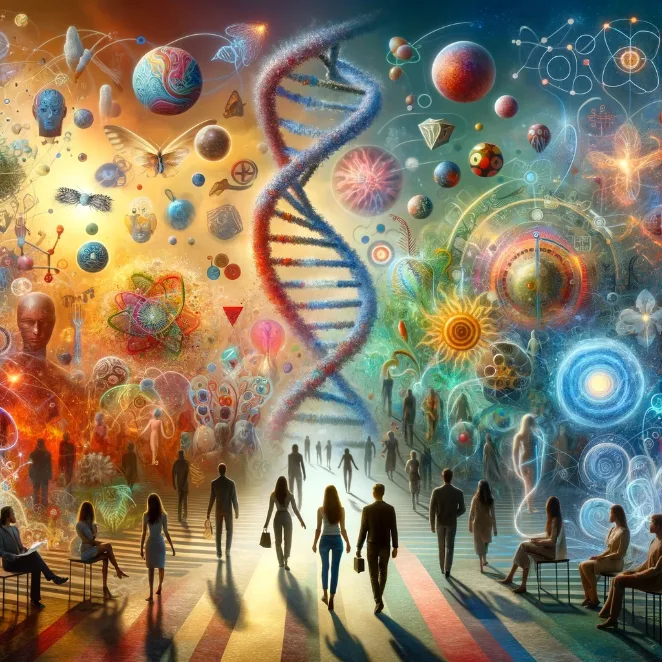
The Biology Behind Attraction
Attraction is a complex, often mysterious force that plays a crucial role in human relationships and compatibility. Beyond mere physical appearance or shared interests, there lies a deeper, more subtle layer of attraction rooted in our biology. This biological aspect of attraction is a sophisticated interplay of genetics, pheromones, psychological factors, and evolutionary influences. Understanding how these elements intertwine to dictate whom we are drawn to can offer fascinating insights into the nature of human relationships and compatibility. This article delves into the various biological factors that influence attraction, shedding light on how nature intricately orchestrates this fundamental human experience.
article by Sofia Ferguson
The Role of Genetics In Attraction
Genetics plays a significant role in the complex dynamics of attraction. Research suggests that people are often subconsciously attracted to individuals with genetic profiles different from their own. This attraction to genetic diversity, known as heterozygosity, is nature's way of ensuring greater genetic variation and healthier offspring. Major histocompatibility complex (MHC) genes, which play a critical role in immune system functioning, are particularly influential in this regard. Studies have shown that individuals tend to be attracted to those with dissimilar MHC genes, a preference detectable through scent. This genetic-based attraction is an evolutionary strategy aimed at enhancing the survival and health of future generations.

Pheromones: The Silent Communicators In Attraction
Pheromones, often referred to as the 'chemical messengers' of attraction, are another pivotal biological factor. These odorless chemicals, secreted by the body, play a key role in sexual attraction and communication. Pheromones are detected through the olfactory system and can subconsciously influence human behavior and perception. They can signal a range of information from fertility to genetic compatibility. The role of pheromones in attraction highlights the subtle yet powerful ways in which our bodies communicate and respond to potential mates, often outside of our conscious awareness.
Psychological Influences and Evolutionary Perspectives
Attraction is also shaped by psychological factors deeply rooted in our evolutionary past. Traits such as facial symmetry, youthfulness, and certain body proportions are often considered universally attractive. These preferences are not merely cultural constructs but are believed to be evolutionary signals of health, fertility, and good genes. From an evolutionary perspective, attraction is driven by an innate desire to reproduce and pass on one’s genes. Consequently, traits that are perceived as indicators of good health and genetic fitness tend to be more universally appealing.

The Complexity Of Human Attraction
Human attraction, however, is not solely dictated by biology. It is a multifaceted phenomenon where biological factors interplay with personal experiences, cultural influences, and individual preferences. While biology provides a foundational framework, personal and societal factors add layers of complexity to whom we find attractive. This complexity ensures that human attraction remains a uniquely personal and diverse experience, differing vastly from one individual to another.

A Symphony of Factors In Human Attraction
The biology of attraction presents a fascinating tapestry of genetics, pheromones, psychological influences, and evolutionary history. Understanding the biological underpinnings of attraction offers valuable insights into the nature of human relationships and compatibility. However, it is the intricate combination of these biological cues with personal experiences and cultural contexts that truly shapes the enigmatic and diverse nature of human attraction. In the end, the dance of attraction is a symphony of multiple factors, each playing its part in the complex journey of human relationships and love.
Published: 11/27/2023
Modified: 11/27/2023
More predictions
Come back here soon to learn more about yourself and your future


Communication Styles: Key to Compatibility
In the intricate dance of human interaction, communication styles play a crucial role in shaping the dynamics of our relationships. Whether in personal connections, professional environments, or casual encounters, the way we express ourselves profoundly impacts the compatibility and success of our interactions. This article delves into the various communication styles — assertive, aggressive, passive, and passive-aggressive — exploring how each influences and forms the foundation of relational compatibility. Understanding and adapting these styles can be the key to enhancing our interactions, resolving conflicts, and building stronger, more harmonious connections.


Deciphering Life's Milestones: The Numerology of Significant Dates
In the mystical world of numerology, every number carries its unique vibration and energy, influencing various aspects of our lives. This is particularly significant when it comes to important dates, such as anniversaries, birthdays, or other memorable events. These dates, when analyzed numerologically, can reveal deep insights into the events they signify and the influences they exert over our lives. They hold a mirror to our personality traits, life challenges, and even our relationships. By understanding the numerology of significant dates, we gain a tool for insight and reflection, offering a clearer understanding of our life’s journey and the milestones that shape it. Delving into the numerology of these dates can provide enlightenment on past events and guidance for future endeavors, enriching our experience and appreciation of life's significant moments.


Love's Numerology: The Resonance of Names
Names, in the realm of numerology, are more than a mere collection of letters. They hold a significant vibrational energy that can influence various facets of life, including personal traits, destiny, and relationships. In love, the numerology of names can be particularly revealing. Analyzing the numerical significance of names provides insights into compatibility, potential challenges, and the dynamics within a relationship. It's like peering through a window into the unseen forces that influence how individuals connect and interact. By decoding the vibrational essence of names, couples can gain an understanding of the subtle energies at play in their relationship, leading to deeper harmony and understanding.